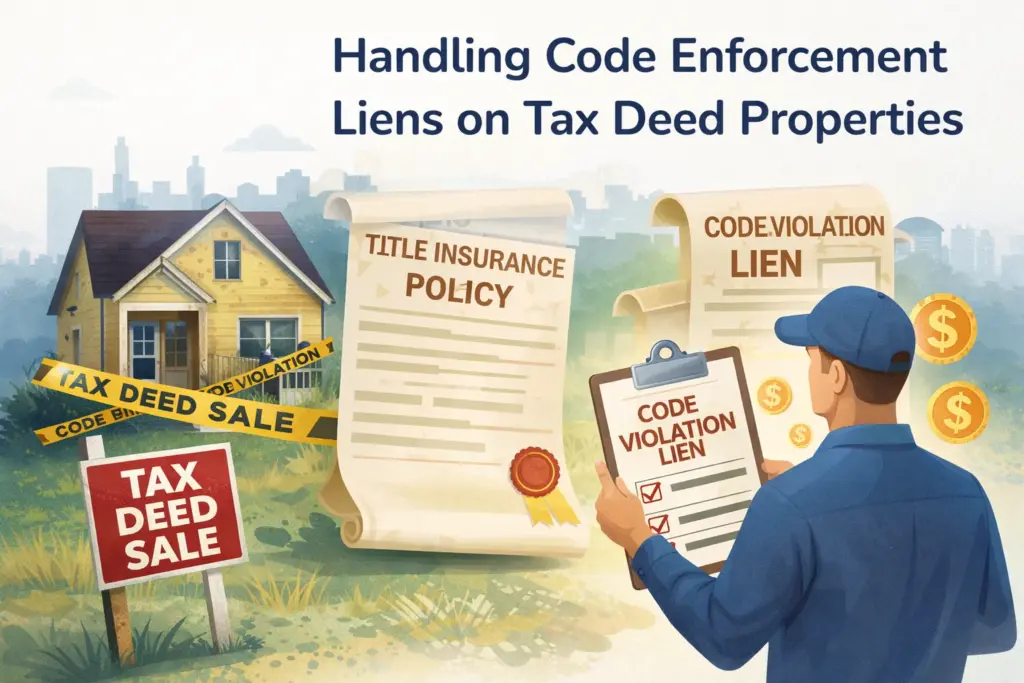There are a wealth of questions we encounter from our clients, but one situation we encounter frequently is an investor calling with concerns about a tax deed property that has various code enforcement violation liens, and how that is going to affect the process of getting title insurance.
There is a lot of confusion regarding what is and is not wiped out after a tax deed sale.
In Florida, mortgages, judgment liens, association liens are wiped out in a tax deed auction, if the lien holders were properly noticed before the sale. Municipal liens, i.e., those that are in the city’s name like water, sewer, and code enforcement liens are not. These liens may be satisfied with the overbid (surplus) funds, but if not, the owner of the tax deed is responsible for the remaining liens even though it was not them who caused these violations against the property in the first place.
So how do these types of liens appear and what makes them so burdensome?
There are many reasons why people stop paying their property taxes, including a concern that their home is worth little to nothing. Sometimes this can be due to the amount of liens already attached to the property. If the property is abandoned and deteriorates into an eyesore for the neighborhood, this distressed property sits and collects daily fines from the city. Once it goes to auction, the new tax deed owner would potentially become liable for thousands of dollars in liens that are going to drain their profit. A client of ours recently discovered that one of his properties we were working on had accrued over $200,000 in code enforcement liens that had been adding up by hundreds of dollars per day!
What can investors do to remedy the situation?
The property has been sitting and collecting code violations for overgrown grass, graffiti, or visible damage because no one is there to fix it up. When that property is bought at a tax deed auction, typically the new owner of the deed has intentions to repair, remodel, or rebuild for the purpose of selling or renting, which makes the new owner an ally of the community, not the originator of the violations. By coming in with the promise of improving the property, they are bringing up the neighborhood value and image.
With that being said, the new owner can attempt to utilize a lien reduction agreement, which can be obtained from the local code enforcement office (and originator of the lien). Once a code enforcement officer states they will support such a reduction, the investor can go before a meeting of the Special Magistrate. Our clients have been successful in obtaining lien reductions for up to 80-90% less than the original amount, aided by their plans to improve the problem property.
Bear in mind that certain violations, such as Nuisance Abatement, cannot be negotiated down because of the hard costs to the city. But the standard Code Enforcements are nearly always able to be negotiated down to a reasonable level.
If your tax deed property has come with code enforcement liens, schedule a free attorney consultation to determine the next step. You can also contact us for more information about how to find code enforcement lien reports from your Florida county!


I have $500,000 in the code charges on my duplex in Fort Lauderdale Florida. What can I do
Hi Peter, our investors have had a lot of luck negotiating these liens down in the past. If you can reach out to us we can link you up with someone on our team that can provide some assistance: phone us at 1-855-680-4908 or email us [email protected].
Looking to start investing. Can you help?
Absolutely I will have someone from our team reach out with some free educational resources!